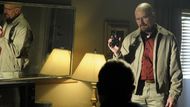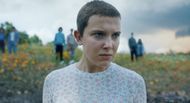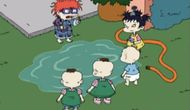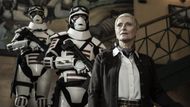Sometimes a show ends, and you think that was it. You saw the twist and the finale and the full story. But then someone brings up a theory, and everything changes. That lighthearted sitcom might not have been so cheerful. That serious drama might have been hiding something darker.
Fans have spent years digging into episodes and catching things others missed. These theories are not just throwaway ideas. They completely change the way people remember these shows.
Some theories are believable, while others sound crazy at first. But they all stick in your mind. They make people go back and rewatch scenes that seemed simple the first time. They make you question every look and every line of dialogue. You start to wonder if anything was ever as straightforward as it seemed.
These are the kinds of theories that end up in group chats and fan forums and YouTube essays. They get people talking, debating, and second-guessing everything. The list ahead includes ten theories that have done exactly that. They may not all be true, but they are detailed enough to make you stop and think. Once you hear them, you will not watch those shows the same way again.
These 10 TV show theories will make you rethink what you've watched
1. Breaking Bad – Walter White is the cancer

This theory suggests that the cancer in the show is not limited to Walter’s body in this TV show. It says Walter himself becomes the disease that spreads through everyone he knows. He destroys Jesse’s life and turns Skyler into an accomplice. He lets Jane die and puts Hank in danger.
It reframes the whole story. Instead of being about one man trying to provide for his family, it becomes a look at how power eats people from the inside. For a TV drama built on transformation, this theory makes it clear that Walter’s change was never about survival. It was always about decay.
2. Friends – Phoebe imagined it all

The theory says Phoebe watched the others from the outside. She saw them from the street and built a fantasy where she was part of their lives. Her version of the story explains the bright apartments and simple problems.
It adds a dark edge to a light show. If true, then everything we see on screen is how one person copes with loneliness. This theory turns the comedy into a quiet tragedy. For a TV show often seen as feel-good, this theory makes people stop and think about what Phoebe was really going through the whole time.
3. The Fresh Prince of Bel-Air – Will is dead

The theory for this TV show here is that Will died in that fight in Philadelphia. Bel-Air becomes a place where he works through his past and finds peace. Uncle Phil becomes a mentor figure he never had. The house becomes a space for growth.
It explains why Will’s lessons are so sharp and why each episode ends with closure. The theory changes the tone of the show without altering a single scene. As a sitcom, it remains funny, but this theory makes every laugh land a little differently. The theory suggests Will’s entire journey was never about fitting in. It was about letting go.
4. The Office – Toby is the Scranton Strangler

Toby always felt out of place in this TV show. He speaks softly and avoids conflict, but he knows every detail of the Scranton Strangler case. He says they convicted the wrong man. That line started this entire theory.
People noticed Toby disappears during certain episodes. They pointed out how the camera lingers on him longer than needed. The theory adds a layer of suspicion to a background character. As a TV comedy with almost no mystery elements, this twist feels strange, but fans love how it changes the tone. It makes Toby more than just the guy Michael hates. It gives him secrets.
5. Stranger Things – Eleven is the real villain

Every season starts with something going wrong after Eleven uses her powers. She opened the gate, and each monster seemed connected to her actions. Even when she saves people, the world gets worse.
The theory says she is not evil, but the chaos follows her. It makes her powers feel dangerous instead of heroic. The story no longer becomes about good versus evil but about cause and consequence. In the TV world of supernatural shows, this theory asks hard questions. What if the hero is the reason everything fell apart in the first place? What if that was the point?
6. Rugrats – The babies are imaginary

The theory is that Angelica made the babies up. She imagines Chuckie as a kid with a dead mom. Tommy was never born. The twins were never real. It all comes from her trying to make sense of loss.
This theory turns a happy show into something dark. It explains why Angelica acts out and why the adults never seem to notice what the babies are saying. As a TV cartoon created for kids, this hidden meaning shifts the entire tone. It makes people look back and see sadness where they once saw simple childhood fun and imagination.
7. The Walking Dead – Rick is still in a coma

In the first episode, Rick wakes up in a hospital. This theory says he never woke up. The apocalypse and every person in it are part of a dying dream. His guilt and fears come alive.
Shane becomes angry. Carl becomes his reason to fight. The world reflects how he sees himself. It explains why everything grows worse with time. For a TV show that thrives on pain, this theory makes it feel more personal. It becomes one man’s journey through memory and regret. If it was true, then nothing we saw was ever meant to be real.
8. SpongeBob SquarePants – Each character is a sin

This theory says SpongeBob represents lust but not the romantic kind. It means his obsession with making people happy is extreme. Patrick is a sloth. Squidward is wrath. Mr. Krabs is greedy. Gary is gluttonous. Sandy represents pride. Plankton is envious.
It turns Bikini Bottom into a strange kind of symbolic world. The characters stop being just weird sea creatures and start standing for bigger ideas. In a TV show known for randomness, this theory adds structure. It explains their behavior and why nothing ever really changes. People still bring it up because it offers a strange but oddly fitting explanation for everything.
9. Lost – The island is purgatory

The characters crash and wake up on an island that forces them to face guilt and failure. Some find peace. Some suffer. Some never leave. The idea that it is purgatory still makes sense to people.
Even though the creators denied it, the theory keeps coming back. It lines up with what the show tried to say about choice and redemption. Every flashback and death gains new meaning. For a TV series filled with confusion, this theory brings clarity. It gives the show an ending that people can feel, even if it was never officially written that way.
10. The Simpsons – Homer is in a coma

In one early episode, Homer gets hit by a cannon and ends up in a coma. After that, the stories get strange. The characters stop aging. Time feels like it loops. The theory says Homer never woke up.
It explains why things lost their realism and why old episodes felt more grounded. What we see is a dream where Homer’s mind is stuck. For a TV show with such a long run, this theory marks the point where things changed. It helps fans separate what felt real from what felt surreal. It also adds unexpected weight to a cartoon.
Follow Soap Central for more updates.
